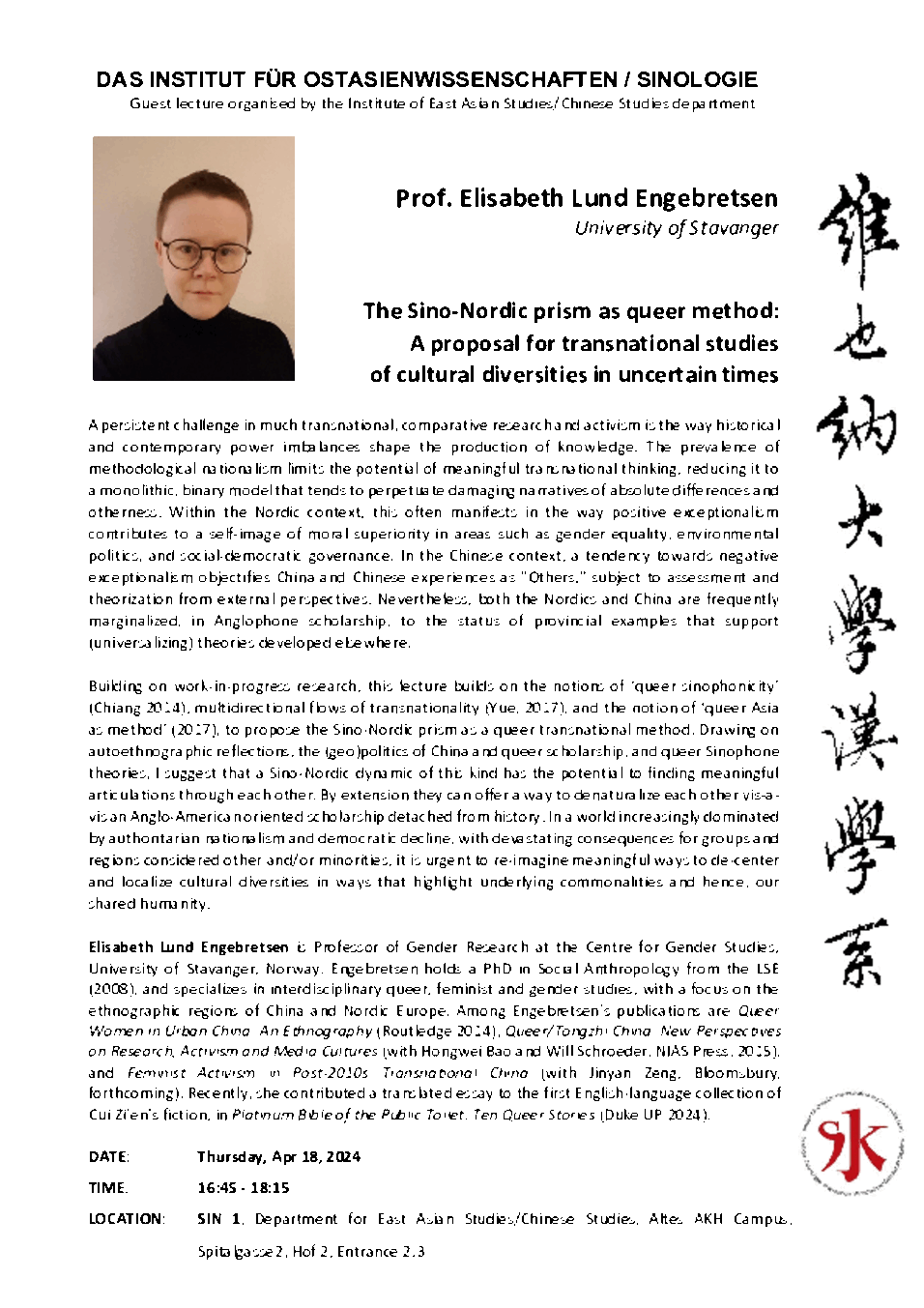A persistent challenge in much transnational, comparative research and activism is the way historical and contemporary power imbalances shape the production of knowledge. The prevalence of methodological nationalism limits the potential of meaningful transnational thinking, reducing it to a monolithic, binary model that tends to perpetuate damaging narratives of absolute differences and otherness. Within the Nordic context, this often manifests in the way positive exceptionalism contributes to a self-image of moral superiority in areas such as gender equality, environmental politics, and social-democratic governance. In the Chinese context, a tendency towards negative exceptionalism objectifies China and Chinese experiences as "Others," subject to assessment and theorization from external perspectives. Nevertheless, both the Nordics and China are frequently marginalized, in Anglophone scholarship, to the status of provincial examples that support (universalizing) theories developed elsewhere.
Building on work-in-progress research, this lecture builds on the notions of ‘queer sinophonicity’ (Chiang 2014), multidirectional flows of transnationality (Yue, 2017), and the notion of ‘queer Asia as method’ (2017), to propose the Sino-Nordic prism as a queer transnational method. Drawing on autoethnographic reflections, the (geo)politics of China and queer scholarship, and queer Sinophone theories, I suggest that a Sino-Nordic dynamic of this kind has the potential to finding meaningful articulations through each other. By extension they can offer a way to denaturalize each other vis-a-vis an Anglo-American oriented scholarship detached from history. In a world increasingly dominated by authoritarian nationalism and democratic decline, with devastating consequences for groups and regions considered other and/or minorities, it is urgent to re-imagine meaningful ways to de-center and localize cultural diversities in ways that highlight underlying commonalities and hence, our shared humanity.
Elisabeth Lund Engebretsen is Professor of Gender Research at the Centre for Gender Studies, University of Stavanger, Norway. Engebretsen holds a PhD in Social Anthropology from the LSE (2008), and specializes in interdisciplinary queer, feminist and gender studies, with a focus on the ethnographic regions of China and Nordic Europe. Among Engebretsen’s publications are Queer Women in Urban China: An Ethnography (Routledge 2014), Queer/Tongzhi China: New Perspectives on Research, Activism and Media Cultures (with Hongwei Bao and Will Schroeder, NIAS Press, 2015), and Feminist Activism in Post-2010s Transnational China (with Jinyan Zeng, Bloomsbury, forthcoming). Recently, she contributed a translated essay to the first English-language collection of Cui Zi’en’s fiction, in Platinum Bible of the Public Toilet: Ten Queer Stories (Duke UP 2024).
For more information, please refer to the attached PDF
DATE: Thursday, April 18, 2024
TIME: 16:45 – 18:15
LOCATION: SIN 1, at the Department for East Asian Studies/Chinese Studies, Altes AKH, Campus, Spitalgasse 2, Yard 2, Entrance 2.3

